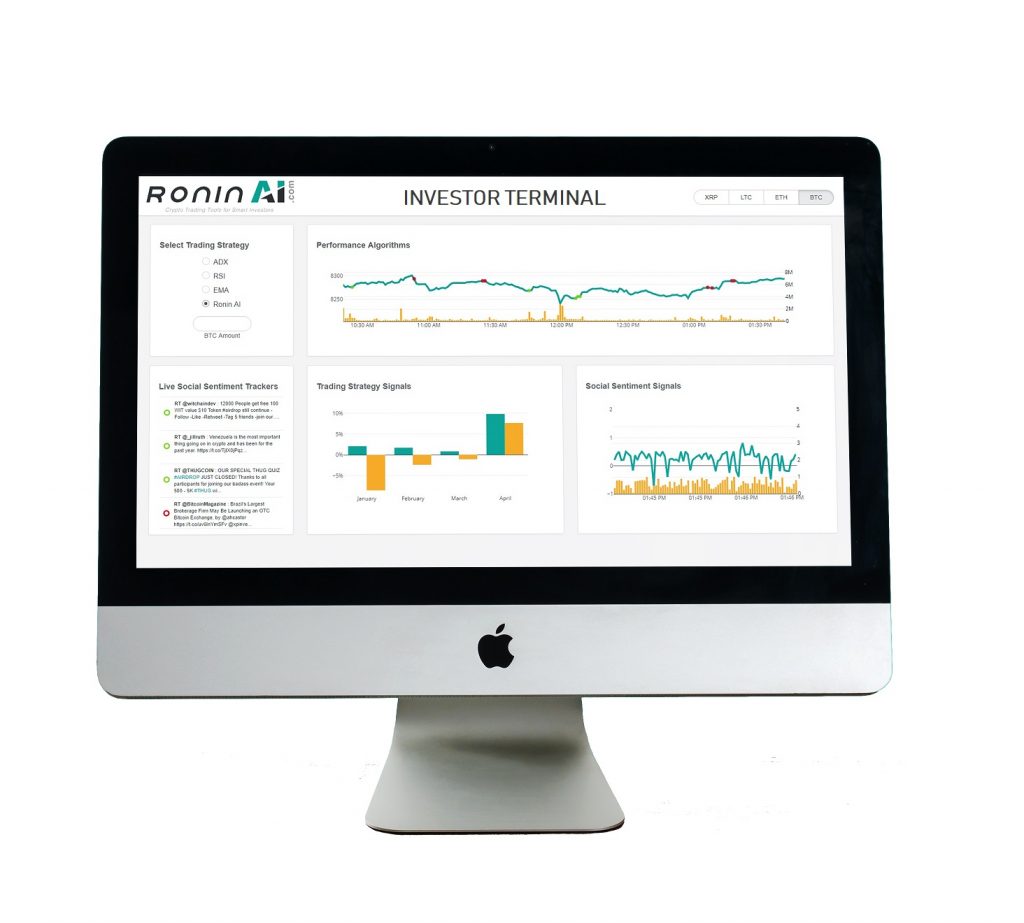
2023-5-20 17:21 |
Anyone who has ventured into the cryptocurrency world will agree with one thing: the volatility is unmatched. Be it plummeting or soaring prices, crypto markets are notorious for the pace at which they move.
Over the last year, this has been downward, with the market absolutely ravaged as central banks around the world moved to hike interest rates. And while prices have begun to rebound in the last six months, the crypto market is still a long way off its peak from late 2021.
Recently, liquidity in the sector has also been dropping, which means less capital is needed to move prices and hence volatility is higher again. As the regulatory climate continues to become more hostile in the US, this could worsen further.
This all means that today, the cryptocurrency market is a shadow of it was during the heyday of the pandemic: prices, volume, liquidity and general interest from both retail and institutions has pared down massively.
Despite this bearish climate, some within the space are still defiant that the good times will return. Stanislaw Havryliuk, COO of the European crypto exchange Zonda, is one of those believers. We interviewed him this week to get his thoughts on crypto’s volatility, current prices, and trajectory going forward.
Interview with Stanislaw HavryliukInvezz (IZ): Many would agree with your assertion of the relentless volatility of crypto assets (Havryliuk provided commentary on the heightened volatility recently). Do you think this makes crypto more of a gamble than an investment?
Stanislaw Havryliuk (SH): It depends on the strategy you pick when it comes to trading crypto. If you try to jump into hype tokens and dump them after securing a short-term gain – it’s definitely a gamble. On the other hand, if you pick a dollar cost averaging strategy and go for a long-term investment strategy, you can gradually reduce risks and benefit from volatility when exiting from crypto to fiat.
So, the short answer: yes and no, it depends on who the trader is.
IZ: Many point towards the lack of liquidity as part of the reason that crypto is so volatile. Recently, this has become more evident, with order books significantly shallower since Alameda collapsed in November. Last week also saw the news that prominent market makers Jane Street and Jump Crypto were scaling back from the space. Do you expect liquidity to return?
SH: Yes, I do believe that liquidity will return to the markets, along with price growth of Bitcoin and other cryptocurrencies. There are quite a lot of indicators that might positively affect the price of crypto, and therefore increase the volume and liquidity. I see such factors:
U.S. debt is close to its ceiling and if the ceiling is not increased, the U.S. might face technical default. If that happens, most of the people in the world will start looking for an alternative store of value. According to Bloomberg’s latest survey, the top 3 alternative investment options for U.S. citizens are Gold (45.7%), Treasuries (15.1%) and Bitcoin (11.3%). This means that in case of an unfortunate event, 1 of 9 U.S. citizens could potentially put their money in Bitcoin, creating a huge liquidity boost Banks are going bankrupt. Each time a big bank goes bankrupt, BTC goes up in price. Why? Because people don’t trust the banks, and they want to be in control of their own financial freedom. CreditSuisse, SVB, Silvergate, and First Republic bankruptcies have already happened, and it looks like it’s not over. 2024 halving will also positively affect the liquidity and price of Bitcoin. Invezz commentary:There are some provocative predictions made here, so we wanted to provide some commentary:
The US debt ceiling is certainly a big topic in the news cycle, but it is more a political game rather than an existential threat to the US economy. At least, that is the way the market views it, with minimal concern evident in prices these past couple of weeks. In fact, stocks rose Thursday as optimism increased that a deal between Democrats and Republicans was nearing.
It remains an extremely small possibility that a default will occur imminently, and therefore, we are unlikely to see what this would do to Bitcoin. Residing outside the fiat world, it certainly would represent an interesting proposition, but in the case of an imminent default for the financial centre of the world, it is hard to imagine what would happen not only to the global economy, but society at large.
As for Havryliuk’s point around Bitcoin rising every time a bank fails, this has not been strictly true. While Bitcoin rose originally when Silicon Valley Bank collapsed, this was more due to a flip to a more dovish expectation around the future path of interest rates rather than the bank failing itself. Interest rate expectations have been moving Bitcoin all year, and the market saw the failure of SVB as restraining the Fed’s ability to hike as quick as they otherwise could have.
An important point to note is that the US administration also stepped in to guarantee deposits at these banks. Thus far, the banking crisis is taking the form of a regional banking crisis, which is certainly a crisis in itself as a lack of competition for big banks such as JP Morgan presents problems and moral hazard dilemmas, but not a threat to the fibre of fractional reserve banking in the US – no US customer has lost any money at any of these banks. Looking at the Bitcoin price since, the price has been relatively rangebound, while correlation with the Nasdaq has risen to above 0.9 on a 60-Day basis.
For the final point around liquidity increasing after the Bitcoin halving in 2024, I guess we will have to see!
Stocks vs cryptoIZ: Crypto and stocks continue to be highly correlated, with the former often trading like a levered bet on the latter. Do you think the asset class can ever decouple, and if so, what needs to occur to push this decorrelation?
SH: Mass adoption is the only way to decouple crypto and stocks. Currently, they are both viewed as (risk) assets, but with wide, global adoption, crypto will become a commodity. Once that occurs, Bitcoin will compete with gold rather than stocks, which is a completely different class of asset. I would say that one of the ways that we can encourage this movement is to show how simple it is to use crypto in payments, online or offline.
Consumers already wanted to use crypto to pay for purchases back in 2021, in industries such as travel, retail, grocery and digital media. Merchants were already well prepared even back then so considering how the popularity of crypto has increased over the past two years, it is safe to say that the group of people who are willing to pay with crypto now is even higher.
To meet the demand, there is an increasing number of services that are ready to accommodate merchants who see this opportunity, such as zondacrypto pay.
Invezz commentary:We would agree that mass adoption is required for Bitcoin to decouple from stocks. As for other crypto, it is harder to say – many of these certainly present as extreme risk assets, regardless of adoption, so it is hard for us to make predictions here.
On the crypto payments side, we have seen a stark dropoff in demand for everyday usage of crypto since 2021, in contrast to Havryliuk’s thoughts. Bitcoin hit $68,000 in 2021, NFT volumes have collapsed (down 97% in 2022 by some measures), and crypto as a whole has seen a massive dropoff in interest from both the general public and institutions.
IZ: The stock market is generally viewed as highly efficient, with the EMH generally holding firm through most time periods. Do you think crypto is less efficient?
SH: According to EMH, asset price incorporates all available information, making it difficult for investors to consistently achieve abnormal returns. It’s relevant for the stock market as there is more clarity and more actors in the market.
Crypto is still relatively young and lacks a decent regulatory framework. This creates a lot of loopholes for investors to manipulate the market and get abnormal gains. I do believe that mass adoption will resolve this issue, along with decreasing volatility and decoupling crypto from the stock market.
IZ: As a European exchange, how do you view the regulatory clampdown in the US? Do you fear it will hold the industry back, or do you think you could benefit if crypto is pushed beyond the US?
The regulatory clampdown in the U.S. is definitely affecting the crypto market. U.S.-based exchanges are moving to other jurisdictions in Asia, UAE, the Caribbean and Europe – mainly Ireland.
Stanislaw HavryliukI think that the exodus of crypto companies from the U.S. will benefit the regions that will accommodate them, so it’s hard to say who will be the absolute winner here. But everyone will get a piece of the pie except the U.S.
We are also seeing regulatory movements in the EU, but they are aimed at empowering crypto industry entities rather than driving them away from the market. In further perspective, it is very possible that the EU will become a market leader due to their healthy approach to the crypto regulation that fosters the ecosystem of innovations.
How far has volume dipped?IZ: Crypto volume fell drastically in 2022. Did you notice this at your exchange, and do you believe it can return?
SH: Yes, everyone noticed the drop in volumes. All of the CEXs lost ~40% of their volumes after November 2022. After the New Year, the volumes started coming back slowly. The defining factor for volumes to restore to peak 2021 levels is the price of BTC. If it goes up and gets mainstream media attention – more new users enter the space and volumes go up.
To achieve that, among others, regulations are necessary in order to create a safer space for trading that will encourage new users to join the industry. Even now, crypto remains a mysterious topic for many. Official, healthy regulatory movements should be critical in convincing the unconvinced that this technology is not a mere fad but a critical component of our future economy.
Invezz commentary:For crypto, this remains the most exhilarating and perilous point: companies in the industry are tied to the ever-so-volatile Bitcoin price. As Haryliuk points out, as the price goes up, media attention rises, new users enter the space, volumes rise and, ultimately, revenue increases for crypto companies.
The problem, as we have seen in this bear market, is that the price can also go down, too. This means for companies in the space, it is a rollercoaster ride.
The post Interview: Volatility, liquidity and what happens next for crypto – Zonda exchange appeared first on Invezz.
origin »Emerald Crypto (EMD) на Currencies.ru
|
|


















